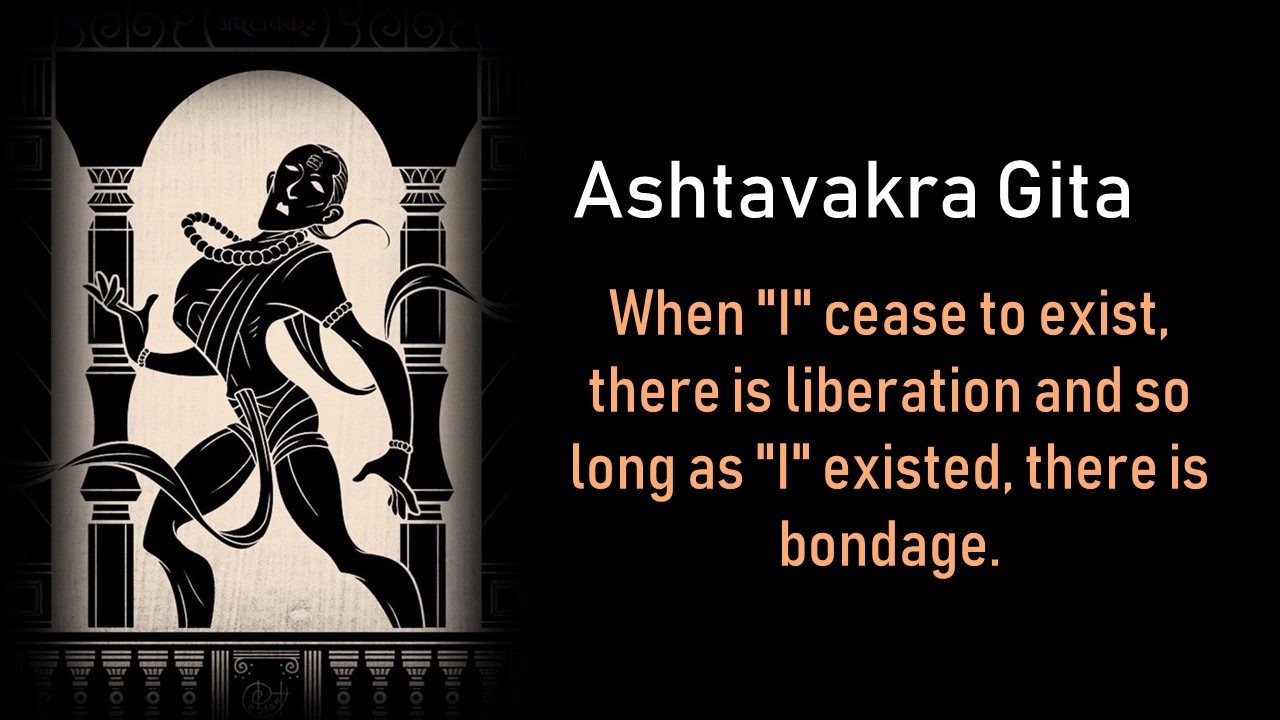The Ashtavakra Gita is a text on non-duality, written in poetic form as a dialogue between two enlightened beings. One is sage Ashtavakra and the other is Janaka, king of the kingdom Mithila. This episode is found in Vanaparvam of Mahabharata, the great Indian epic.
Ashtavakra Gita is masterpiece. When it comes to spiritual texts on non-duality, this book is unparalleled and presents the wisdom of non-duality directly without any twists and turns. This work was quoted by many spiritual masters from Ramakrishna Paramahamsa to Ramana Maharshi.
The words of Ashtavakra reverberate with extraordinary lucidity the nature of Self as observed by Thomas Byrom in his translation of this Gita, “The Heart of Awareness“:
The Gita has only one voice … a voice of singular compassion and uncompromised clarity.
We are all one Self. The Self is pure awareness… Everything else is an illusion: the little self, the world, the universe. All these things arise with the thought “I,” that is, with the idea of separate identity. The little “I” invents the material world, which in our ignorance we strive hard to sustain. Forgetting our original oneness, bound tightly in our imaginary separateness, we spend our lives mastered by a specious sense of purpose and value. Endlessly constrained by the our habit of individuation, the creature of preference and desire, we continually set one thing against another, until the mischief and misery of choice consume us.
The text starts with Janaka asking the all-embracing question:
How is one to acquire knowledge? How is one to attain liberation? And how is one to reach dispassion?
Ashtavakra replies:
If you are seeking liberation, my son, avoid the objects of the senses like poison and cultivate tolerance, sincerity, compassion, contentment, and truthfulness as the antidote.
You do not consist of any of the elements — earth, water, fire, air, or even ether. To be liberated, know yourself as consisting of consciousness, the witness of these.
If only you will remain resting in consciousness, seeing yourself as distinct from the body, then even now you will become happy, peaceful and free from bonds.
This book is a must for everybody on their journey to self-discovery. There are a total of 298 stanzas, and each one is a direct instruction on the nature of Self.
When “I” cease to exist, there is liberation and so long as “I” existed, there is bondage.
Click here for the full text of Ashtavakra Gita





